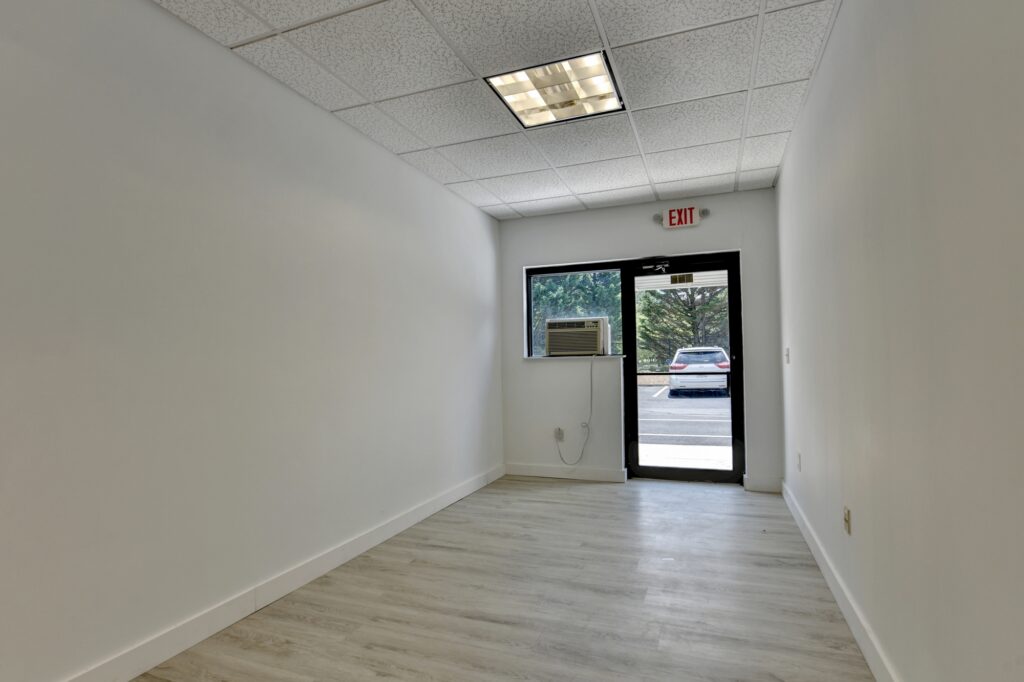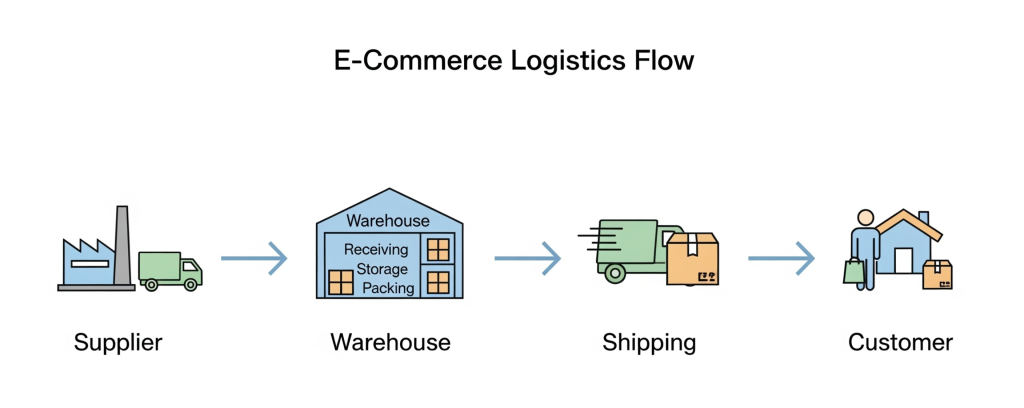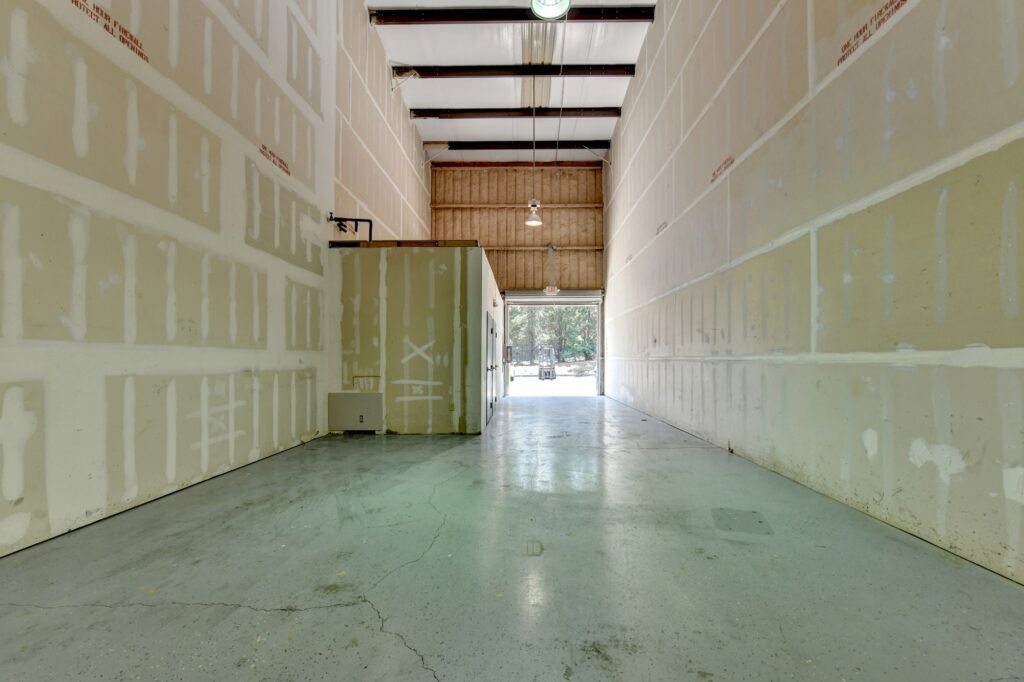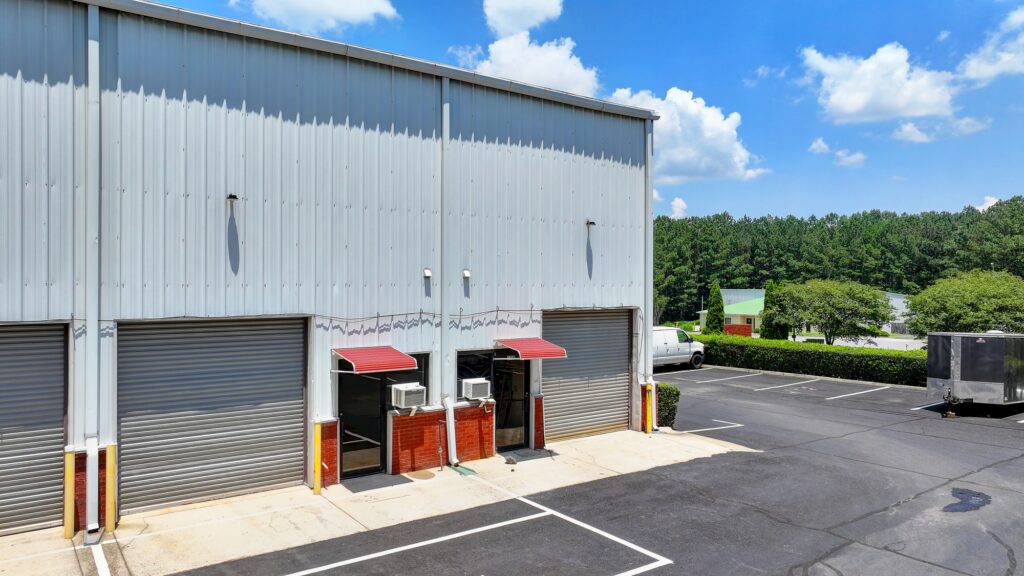The Perfect Alpharetta Hub: Why E-commerce Businesses Need a Warehouse
In the bustling world of e-commerce, efficiency is key. A warehouse with an office can be a game-changer for online stores. It centralizes operations, streamlines logistics, and enhances customer satisfaction. Alpharetta, with its strategic location, offers the perfect setting for such a hub. This article explores why e-commerce businesses should consider establishing a warehouse in Alpharetta. Discover how this move provides the e-commerce logistics solutions needed to optimize your operations and drive growth.

Understanding E-commerce Logistics Solutions
E-commerce logistics solutions are vital for the success of any online store. They ensure that products move smoothly from supplier to customer. These solutions encompass a range of services designed to optimize operations. From handling inventory to managing shipping, they cover it all.

Alpharetta’s strategic location aids in effective logistics. Its proximity to major highways and airports supports quick shipments. This reduces shipping times and improves customer satisfaction.
Here are essential components of effective e-commerce logistics solutions:
- Inventory management: Accurate tracking of stock levels.
- Order fulfillment: Efficient processing and shipping of orders.
- Returns management: Streamlined handling of product returns and exchanges.
Importance of Efficient Logistics
Efficient logistics are crucial for meeting customer expectations. Quick and reliable delivery can significantly improve your brand’s reputation. By optimizing logistics, you ensure smooth operations and prompt service.
Benefits of efficient logistics include:
- Reduced shipping costs
- Improved customer satisfaction
- Enhanced brand credibility
Having a streamlined logistics process ensures that your business runs smoothly. This means more satisfied customers and better reviews.
Key Components of E-commerce Logistics
Successful logistics management involves multiple key components. Each part plays a vital role in ensuring a smooth operation. They work together to support the end-to-end delivery process.
Key components include:
- Technology integration: Using software for real-time tracking.
- Secure storage: Safe and organized inventory maintenance.
- Logistics partnerships: Collaboration with logistics service providers.
Integrating these components leads to operational efficiency. It allows for timely order processing and delivery, boosting overall performance.
Warehouse Management for E-commerce
Effective warehouse management is a cornerstone of e-commerce success. It involves organizing and controlling how products move and are stored. With optimized warehouse management, businesses can reduce costs and enhance efficiency.
There are several critical aspects to consider for efficient warehouse operations. These include space utilization, workflow efficiency, and inventory control. Each of these plays a role in improving operational performance.
Key elements of e-commerce warehouse management are:
- Inventory monitoring: Keeps track of stock levels.
- Order processing: Streamlines picking and packing.
- Returns handling: Manages product returns efficiently.
Proper management ensures goods reach customers quickly. This bolsters customer satisfaction and boosts repeat business.
Inventory Control Systems
Inventory control systems are essential for maintaining accurate stock levels. They help prevent overstock and stockouts, ensuring smooth operations. Using these systems minimizes human error in inventory management.
Advantages of inventory control systems include:
- Accurate data: Real-time information on stock levels.
- Improved efficiency: Streamlined inventory processes.
- Cost savings: Reduced need for excess inventory.
By leveraging these systems, e-commerce businesses can maintain optimal stock levels. This leads to better resource utilization and cost management.
Tracking and Reporting
Tracking and reporting are vital components of warehouse management. They provide insight into operational performance and identify areas for improvement. Accurate tracking ensures products are accounted for at each stage.
Systems generating reports help business leaders make informed decisions. Real-time data allows for quick adjustments, enhancing flexibility. These reports can help identify trends and uncover potential issues.
Effective tracking reduces errors and improves efficiency. This aligns operations more closely with business goals and customer expectations.
Integrating Technology
Technology integration in warehouses enhances operational efficiency and accuracy. Advanced tech solutions streamline processes and increase productivity. They help automate repetitive tasks and reduce manual workloads.
Key technology solutions include:
- WMS (Warehouse Management System): Streamlines order fulfillment.
- Barcoding: Speeds up tracking and improves accuracy.
- RFID: Automates inventory tracking and enhances security.
Utilizing technology optimizes warehouse operations and minimizes errors. This not only saves costs but also enhances the customer experience.
Benefits of Having Warehouse Space for Small Businesses
Small businesses can gain significantly from dedicated warehouse space. It provides an organized environment for storing and managing products. This arrangement helps businesses achieve higher operational efficiency and productivity.
Key benefits include the ability to scale operations as demand grows. With flexible layouts, warehouses can adjust to changing needs. This adaptability is crucial for businesses planning for future growth.
Additional advantages of warehouse space for small businesses:
- Cost savings: Reduce overhead costs by consolidating logistics activities.
- Space utilization: Maximize storage through optimized layouts.
- Operational efficiency: Streamline logistics processes for better outcomes.
Warehouse space supports small businesses by simplifying logistics and fostering growth. This strengthens their competitive edge in the e-commerce landscape.
Cost-Effectiveness
Warehouse space can be surprisingly cost-effective for small businesses. It allows them to consolidate operations and reduce redundant expenditures. With everything under one roof, businesses save on transportation and labor costs.
A few cost-effective benefits include:
- Lower rent: More affordable than urban retail locations.
- Reduced travel: Less time spent moving products between locations.
- Operational savings: Streamlined logistics reduce overhead expenses.
These savings contribute to better profit margins, allowing businesses to reinvest in growth. Efficient cost management is a cornerstone of successful e-commerce operations.
Space for Growth and Expansion
Securing warehouse space opens the door for future growth. As businesses expand, their storage needs increase. A warehouse provides the room needed for scaling operations without disrupting workflow.
With adaptable layouts, businesses can adjust storage designs as they grow. This flexibility makes it possible to accommodate more inventory. This capability ensures businesses remain agile and responsive to market changes.
Improving Customer Satisfaction
Warehouse space can significantly boost customer satisfaction. With a well-organized system, orders are processed faster and more accurately. Timely deliveries build trust and enhance the customer experience.
Efficient warehouse operations also minimize shipping errors. This reduces the likelihood of customer complaints and returns. Improving logistics directly impacts the level of service customers receive, fostering loyalty and repeat business.
Designing Your Warehouse Space
Designing an effective warehouse space requires careful planning and attention to detail. The layout needs to accommodate both current operations and future growth. Flexibility is essential to meet evolving business demands.

Considerations for warehouse design extend beyond storage. Think about how employee workflow, safety, and technology integration will play a role. Efficient design can lead to smoother operations and increased productivity.
Key design elements to focus on:
- Space utilization: Maximize efficiency with strategic storage solutions.
- Safety measures: Ensure spaces are safe and compliant with regulations.
- Technology integration: Plan for systems that improve logistics functions.
The design choices you make can significantly impact your business’s operational success.
Efficient Shipping and Receiving Area
An effective shipping and receiving area is vital. It organizes the movement of goods, minimizing delays and errors. Proper design ensures smooth transitions between inbound and outbound logistics.
Features of an efficient shipping and receiving area include:
- Clear signage: Directs traffic flow and prevents confusion.
- Ample space: Reduces congestion and enhances productivity.
- Accessible design: Facilitates easy loading and unloading.
Organizing this area well can lead to more efficient order fulfillment processes.
Optimizing Storage Layout
Optimizing the storage layout is crucial for effective warehouse management. The arrangement should ensure easy access to all inventory items. This reduces the time employees spend locating products.
Consider categorizing items based on their turnover rates. High-demand products should be placed near shipping areas. This strategy speeds up order fulfillment and improves customer satisfaction.
Employee Workflow Considerations
Employee workflow is a critical factor in warehouse efficiency. A well-designed workspace enhances productivity and morale. Ensuring smooth movement within the warehouse minimizes downtime.
Focus on these aspects for effective workflow:
- Clear pathways: Ensure unobstructed routes throughout the facility.
- Ergonomic setups: Reduce fatigue and increase productivity.
- Training spaces: Facilitate ongoing employee development and growth.
Efficient workflow design leads to a harmonious and productive work environment.
Conclusion

Securing a warehouse with office space can dramatically enhance your e-commerce business in Alpharetta. It streamlines logistics and improves operational efficiency. This strategic move can lead to reduced costs and enhanced customer satisfaction.
Leveraging Alpharetta’s resources and location elevates your business operations. It positions your company for sustained growth in a competitive market.
The Future of E-commerce Warehousing
The future of e-commerce warehousing lies in adaptability and technology integration. Businesses will increasingly rely on smart warehousing solutions to boost efficiency. This will include automation and data-driven inventory strategies.
Consider investing in a warehouse with office space in Alpharetta to drive your e-commerce success. Explore this transformative opportunity today!